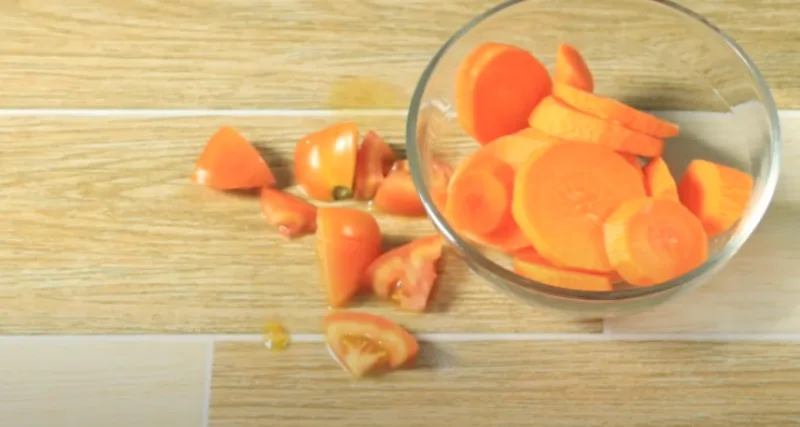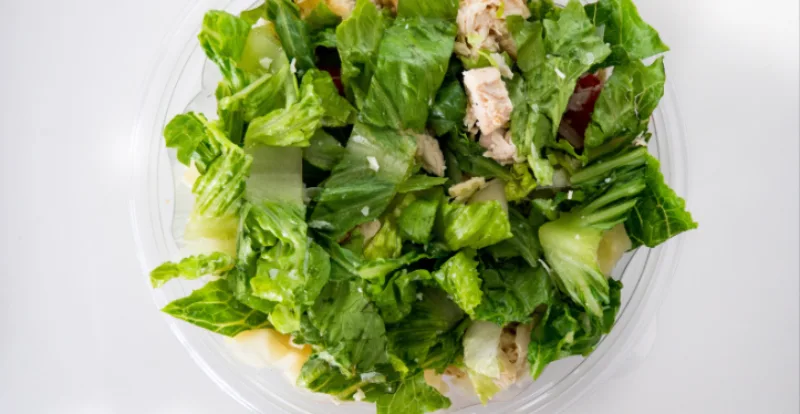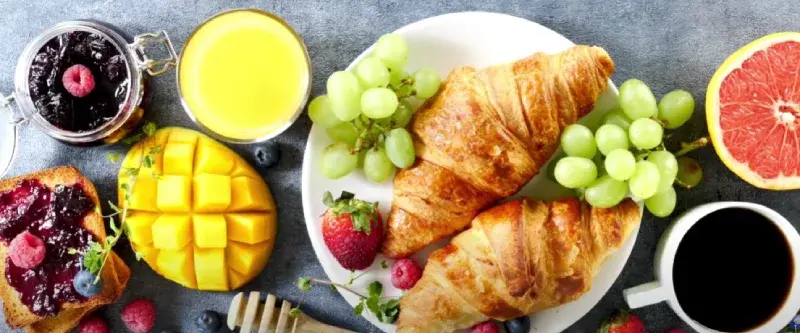Cycling without sun protection foods can increase the possibility of sunburn and skin damage caused by prolonged exposure to UV rays. This can lead to premature aging, a higher probability of skin cancer, and overall decreased skin health. The lack of proper hydration and nutrients can cause dehydration, fatigue, and poor cycling performance.
You can enhance sun protection by adding these foods to your diet: Blueberries, rich in antioxidants, help fight free radicals generated by stress and sun exposure. Watermelon Contains lycopene, which absorbs both UVA and UVB radiation. Healthy skin starts with omega-3 essential fatty acids found in nuts, seeds, hemp seeds, chia seeds, and flax.
In this blog post, we’ll explore delicious and nutritious foods that can give your skin an extra layer of defense. So, grab a snack and read on to discover how to eat for better sun protection.
Foods To Eat For Sun Protection: 16 Best Choices

Cyclists spend considerable time outdoors and are exposed to the sun’s potentially harmful UV rays. While sunscreen and protective clothing are essential, the foods you consume can also significantly prevent sun damage. Some foods can contribute to your skin’s resilience against UV radiation, improve overall skin health, and even boost your cycling performance.
Blueberries
Blueberries are a powerful antioxidant powerhouse. They contain anthocyanins, which prevent free radical damage. These antioxidants can reduce the risk of skin damage, inflammation, and premature aging. Incorporating blueberries into your diet can be delicious and nutritious for improving the skin’s natural defenses.
Watermelon
An ideal summer treat, watermelon is a rich source of lycopene, a powerful antioxidant. Lycopene has been shown to protect against UV radiation by absorbing both UVA and UVB radiation.
Moreover, watermelon contains a high concentration of water essential for keeping you hydrated, which is crucial for maintaining skin health and cycling performance.
Nuts and Seeds
It is possible to find omega-3 fatty acids in nuts and seeds and vitamins A and E, such as almonds, walnuts, flaxseed, and sunflower seeds. Antioxidants like vitamin E protect skin against oxidative stress and ultraviolet damage to the skin.
Omega-3 fatty acids maintain the skin’s barrier function, reduce inflammation, and improve skin health. Consuming nuts and seeds can provide a convenient and tasty way to protect your skin.
Carrots and Leafy Greens
Various vegetables, including spinach and kale, contain beta-carotene, a precursor to vitamin A. Beta-carotene helps enhance the skin’s natural defense against UV radiation and protects the skin from sunburns. Furthermore, these vegetables are packed with nutrients that support skin health and regeneration.
Green Tea
Green tea benefits the body well, protecting the skin against UV rays. It contains polyphenols, particularly catechins, which possess antioxidant and anti-inflammatory properties. Regular consumption of green tea can reduce the risk of sunburn, improve skin elasticity, and support overall skin health.
Cauliflower
The cruciferous vegetable cauliflower contains sulforaphane, a substance known for its chemo-protective properties. Sulforaphane can enhance the skin’s resilience to ultraviolet radiation and reduce its risk of developing skin cancer. You can consume cauliflower as a versatile and nutritious way to protect your skin from sun damage.
Tomatoes

Tomatoes are another excellent source of lycopene, which, as mentioned earlier, helps protect the skin from UV damage. The bioavailability of lycopene increases with cooking tomatoes, making it easier for your body to absorb. Enjoying tomato-based dishes, such as pasta sauce or tomato soup, can effectively boost your skin’s natural defense.
Sweet Potatoes
Sweet potatoes are rich in beta-carotene, which enhances skin protection and gives the skin a radiant glow. It also supports skin regeneration and repair by converting beta-carotene into vitamin A. Eating sweet potatoes makes maintaining the health of your skin easy.
Red, Orange, and Yellow Peppers
Peppers, such as red, orange, and yellow varieties, are packed with vitamins A and C. Vitamin A repair skin cells. In contrast, vitamin C aids in collagen production and is an antioxidant. These colorful vegetables can help reduce wrinkles and protect skin from UV damage.
Salmon
A significant portion of salmon’s fat content is omega-3 fatty acids, which have anti-inflammatory properties and help maintain the skin’s barrier function. Omega-3s can also prevent sunburns and support overall skin health. Including salmon in your diet can help improve your skin’s natural defense mechanisms.
Chocolate
Dark chocolate, in particular, contains flavonoids that have antioxidant and anti-inflammatory properties. They can also improve skin hydration, increase blood flow, and protect skin from UV damage. Dark chocolate can delightfully contribute to your skin’s health.
Chia Seeds
Chia plant seeds contain a high level of omega-3 fatty acids, antioxidants, and essential minerals. These tiny seeds reduce inflammation, enhance hydration, and protect against sun damage. Chia seeds can be added to smoothies, yogurt, or oatmeal to provide a nutritious and convenient way to boost your skin’s protection.
Citrus Fruits

Citrus fruits like oranges, grapefruits, and lemons are high in vitamin C. Skin repair and collagen synthesis depend on vitamin C. It protects the skin against oxidative stress and UV damage. Citrus fruits provide a refreshing way to boost skin health. Refreshing method for supporting skin health.
Strawberries
It is also important to note that strawberries contain a high vitamin C and antioxidants. These delicious berries can help reduce inflammation, improve skin elasticity, and protect against sun damage. Enjoying strawberries as a snack or adding them to your salads and smoothies can be a tasty way to enhance your skin’s resilience.
Pomegranates
Pomegranates are rich in antioxidants, notably polyphenols, which suppress the production of free radicals by the body and protect the skin from harmful ultraviolet rays and reduce inflammation. Including pomegranates in your diet can improve skin health and support your body’s natural sun protection mechanisms.
Leafy Greens

Spinach, kale, and Swiss chard contain high levels of vitamins A, C, and E and antioxidants. Nutritional supplements help protect the skin from oxidative stress, promote skin repair, and enhance overall health. Incorporating leafy greens into a healthy diet can support your skin’s natural defense.
Conclusion
A bicycle is a great way to remain active and enjoy the great outdoors, but it also comes with the risk of sun exposure. The right sunscreen and protective clothing are essential, however, consuming foods can significantly enhance your skin’s resilience against UV radiation. By incorporating these sun-protective foods into your diet, you can maintain a healthy complexion, reduce your risk of sunburn, and even enhance your cycling performance. Remember, the key to enjoying your cycling adventures under the sun lies in a holistic approach that includes external protection and internal nourishment. So, gear up, fuel your body with these nutritious foods, and ride safely beneath the sun.
FAQs
Is Coconut Oil A Good Sunscreen For Cyclists?
Coconut oil provides some natural sun protection because of its high concentration of fatty acids. However, it is not a reliable substitute for sunscreen because of its insufficient protection against harmful ultraviolet (UV) rays.
Does Rice Water Serve As A Sunscreen For Cyclists?
According to a study published in 2013, rice wine (fermented rice water) may reduce the damaging effects of the sun on the skin. Because of rice wine consumption, your skin becomes more supple, and wrinkles are less likely to occur. Natural sunscreen properties are also found in rice wine.


